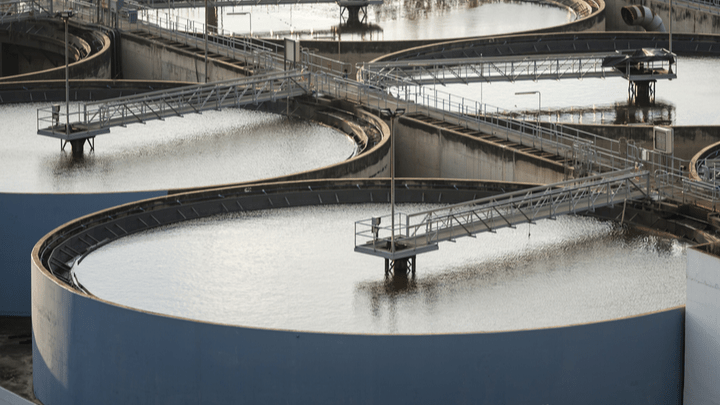Water treatment projects among winners of £42m round of funding from regulator

PILOT projects to improve water treatment were among the biggest winners in the latest round of a funding competition led by regulator Ofwat.
The regulator announced the 16 winners of its fifth Water Breakthrough Challenge last week, allocating a total of £42m (US$56.7m) to company proposals to improve water systems in England and Wales.
The biggest winner was a project led by Severn Trent Water that won £9.8m to trial converting sludge extracted during wastewater treatment into feedstocks for biofuels. Other partners on the project include researchers from Durham University and consultants at Jacobs and Hybrid Gasification.
A similar project led by United Utilities won £5.1m to generate biogas from the breakdown of organic matter during wastewater treatment. United Utilities says that the biogas would then fuel power generation for the treatment process. The project will also involve researchers from Imperial College London and Cranfield University as well as consultants from Jacobs.
Other funding allocations for treatment-related projects include £2m to Northumbrian Water that will use industrial waste heat to drive forward osmosis; £1.9m for Severn Trent to develop microwave-based technology for PFAS removal from drinking water; and £1.4m to a joint project between United Utilities, Northumbrian Water and Anglian Water for rapid gene sequencing to identify specific microbes in wastewater treatment.
The Water Breakthrough Challenge is part of the regulator’s “innovation fund”, launched in 2020 with the promise to invest £600m by 2030 in pilot projects that could help improve all aspects of water infrastructure in England and Wales. Each winning project is required to top up Ofwat’s grant with an additional investment of at least 10%.
While the fund is intended to support improvements across both England and Wales, all 16 winning projects in the latest round were led by water companies serving English regions only.
Ofwat CEO David Black said: “Water underpins our society and economy, and the water sector faces a range of challenges requiring urgent solutions.
“The Ofwat Innovation Fund was established five years ago to incentivise the water sector to collaborate with partners across industry, charities, and academia to accelerate the pace of transformation and create lasting benefits for customers and the environment.
“The level of ambition of this year’s winners is remarkable. We are supporting these projects to prove their impact so that they can be scaled, not only here in England and Wales, but exported around the world as a driver economic growth.”
Trouble on the Thames
Ten of the 16 water companies operating in England and Wales are involved in projects that won Ofwat funding. This includes the beleaguered Thames Water, which is leading a £2m project to improve the efficiency of sand-based water filtration.
Thames, the UK’s biggest water company serving around a quarter of the country’s population, was issued a fine by Ofwat of £122.7m – the biggest in the regulator’s history – this week, for discharging raw sewage “routinely” and for making “undeserved” payouts to shareholders, including a £131.3m dividend last March.
Meanwhile, Southern Water and South East Water both won no Ofwat funding. Southern, owned by a consortium of investment funds including JP Morgan and UBS banks, were previous record holders for the largest ever Environment Agency fine, ordered in 2021 to pay the regulator £90m for discharging billions of litres of raw sewage into the sea.
The other companies not included in winning projects were non-profit Dŵr Cymru Welsh Water and local water-only companies SES Water and Portsmouth Water. Mid-Wales-serving Hafren Dyfrdwy did not win any funding, although its parent Severn Trent was involved in four winning projects.
Recent Editions
Catch up on the latest news, views and jobs from The Chemical Engineer. Below are the four latest issues. View a wider selection of the archive from within the Magazine section of this site.




